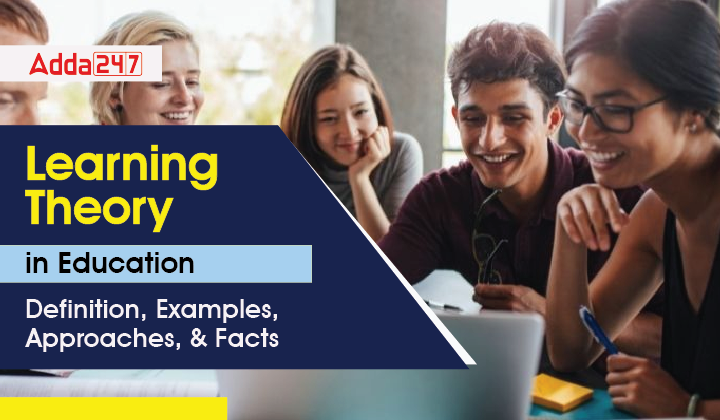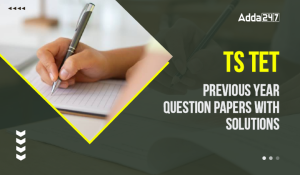Table of Contents
Learning theory in education refers to the body of knowledge and principles that explain how individuals acquire knowledge, develop skills, and change their behavior through the process of learning. It provides educators with insights into the cognitive, emotional, and social factors that influence learning and guides the design and implementation of effective instructional strategies.Here are some prominent learning theories commonly applied in education:
Learning Theory
Learning theories are conceptual frameworks describing how information is absorbed, processed, and retained during learning. Cognitive, emotional, and environmental influences, as well as prior experience, all play a part in how understanding, or a world view, is acquired or changed and knowledge and skills retained.
Behaviorists look at learning as an aspect of conditioning and will advocate a system of rewards and targets in education. Educators who embrace cognitive theory believe that the definition of learning as a change in behavior is too narrow and prefer to study the learner rather than their environment and in particular the complexities of human memory.
Those who advocate constructivism believe that a learner’s ability to learn relies to a large extent on what he already knows and understands, and the acquisition of knowledge should be an individually tailored process of construction. Transformative learning theory focuses upon the often – necessary change that is required in a learner’s preconceptions and worldview.
Learning Theory – Behaviorism
Behaviorism is a philosophy of learning that only focuses on objectively observable behaviors and discounts mental activities. Behavior theorists define learning as nothing more than the acquisition of new behavior. Experiments by behaviorists identify conditioning as a universal learning process. There are two different types of conditioning, each yielding a different behavioral pattern :
- Classical conditioning occurs when a natural reflex responds to a stimulus. The most popular example is Pavlov’s observation that dogs salivate when they eat or even see food. Essentially, animals and people are biologically “wired” so that a certain stimulus will produce a specific response.
- Behavioral or operant conditioning occurs when a response to a stimulus is reinforced. Basically, operant conditioning is a simple feedback system: If a reward or reinforcement follows the response to a stimulus, then the response becomes more probable in the future. For example, leading behaviorist B.F. Skinner used reinforcement techniques to teach pigeons to dance and bowl a ball in a mini-alley.
How Behaviorism impacts learning
- Positive and negative reinforcement techniques of Behaviorism can be very effective.
- Teachers use Behaviorism when they reward or punish student behaviors.
Learning Theory- Cognitivism
Jean Piaget authored a theory based on the idea that a developing child builds cognitive structures, mental “maps”, for understanding and responding to physical experiences within their environment. Piaget proposed that a child’s cognitive structure increases in sophistication with development, moving from a few innate reflexes such as crying and sucking to highly complex mental activities.
The four developmental stages of Piaget’s model and the processes by which children progress through them are: The child is not yet able to conceptualize abstractly and needs concrete physical situations. As physical experience accumulates, the child starts to conceptualize, creating logical structures that explain their physical experiences. Abstract problem solving is possible at this stage. For example, arithmetic equations can be solved with numbers, not just with objects. By this point, the child’s cognitive structures are like those of an adult and include conceptual reasoning.
Piaget proposed that during all development stages, the child experiences their environment using whatever mental maps they have constructed. If the experience is a repeated one, it fits easily – or is assimilated – into the child’s cognitive structure so that they maintain mental “equilibrium”. If the experience is different or new, the child loses equilibrium and alters their cognitive structure to accommodate the new conditions. In this way, the child constructs increasingly complex cognitive structures.
How Piaget’s theory impacts learning
- Curriculum – Educators must plan a developmentally appropriate curriculum that enhances their students’ logical and conceptual growth.
- Instruction – Teachers must emphasize the critical role that experiences, or interactions with the surrounding environment, play in student learning. For example, instructors have to take into account the role that fundamental concepts, such as the permanence of objects, play in establishing cognitive structures.
Learning Theory- Constructivism
Constructivism is a philosophy of learning founded on the premise that, by reflecting on our experiences we construct our own understanding of the world we live in. Each of us generates our own “rules” and “mental models,” which we use to make sense of our experiences. Learning, therefore, is simply the process of adjusting our mental models to accommodate new experiences.
The guiding principles of Constructivism
- Learning is a search for meaning. Therefore, learning must start with the issues around which students are actively trying to construct meaning.
- Meaning requires understanding wholes, as well as parts and parts, must be understood in the context of wholes. Therefore, the learning process focuses on primary concepts, not isolated facts.
- In order to teach well, we must understand the mental models that students use to perceive the world and the assumptions they make to support those models. The purpose of learning is for an individual to construct his or her own meaning, not just memorize the “right” answers and repeat someone else’s meaning. Since education is inherently interdisciplinary, the only valuable way to measure learning is to make assessment part of the learning process, ensuring it provides students with information on the quality of their learning.
How Constructivism impacts learning
- Curriculum – Constructivism calls for the elimination of a standardized curriculum. Instead, it promotes using curricula customized to the students’ prior knowledge. Also, it emphasizes hands-on problem-solving.
- Instruction – Under the theory of constructivism, educators focus on making connections between facts and fostering new understanding in students. Instructors tailor their teaching strategies to student responses and encourage students to analyze, interpret and predict information. Teachers also rely heavily on open-ended questions and promote extensive dialogue among students.
- Assessment – Constructivism calls for the elimination of grades and standardized testing. Instead, assessment becomes part of the learning process so that students play a larger role in judging their own progress.
Learning Theory- Humanism
Humanists think learning as the way in which the individuals develop a unique way of controlling their environment and attaining the best potential. Humanistic approach is based on humanism, which is a philosophy of Man-ism or Human being-ism, concerned with human and humane interests, characteristically human, not supernatural belonging to human beings and not to external nature, raising a human being to his/her greatest potential or giving him/her as a human being, the greatest satisfaction. The major tenets of the humanistic approach are given below:
- Humanistic psychologists view learning as a process that is inevitable and unique for every individual
- Human beings concerns -what a human being ought to be
- An individual can distinguish between herself/himself and her/his environment and is inherently capable of taking responsible decision and learning effectively
- A child is capable of learning. Let it learn with love and peace (without any external pressure).
- Human beings possess the power or potential of solving problems through reasons courage, reason vision and human virtues.
How Constructivism impacts Humanism
- Teachers should thoroughly understand their subject-matter and make wise use of research- demonstrated principles of motivational learning. They must understand themselves as an important teaching aid.
- Teachers should keep in mind that learners bring their total selves to class. They bring heads that think, They bring values that help them to filter what they see and hear. This brings the unique learning styles among the students.
- Teachers must know that learners may be different in learning experiences.
- To encourage the learners to think and get involved in abstract discussion.
- A series of questions should be brought up and discussions should be started actively or passively in the classroom. So that learners may give suggestions freely and run the classroom democratically.
Download Learning Theories Study Notes PDF In English
Download Learning Theories Study Notes PDF In Hindi



 RRB Railway Teacher Result 2025 Out for ...
RRB Railway Teacher Result 2025 Out for ...
 HTET Syllabus 2026 (PRT, TGT, PGT), Chec...
HTET Syllabus 2026 (PRT, TGT, PGT), Chec...
 TS TET Previous Year Question Papers wit...
TS TET Previous Year Question Papers wit...












